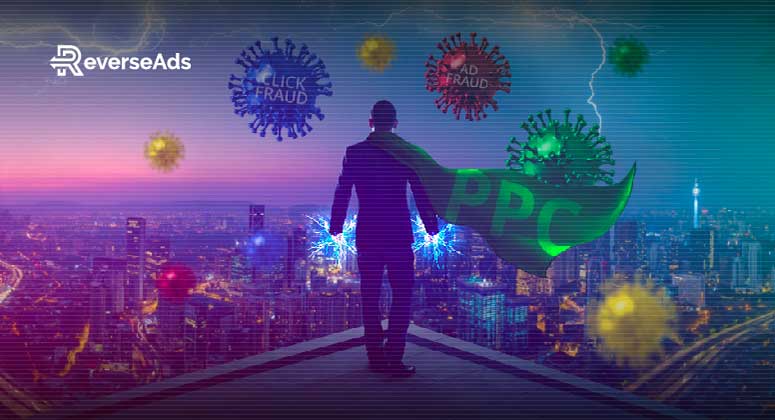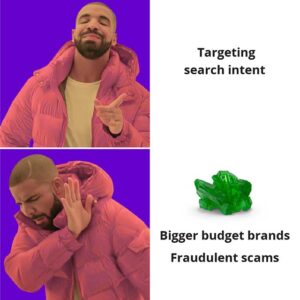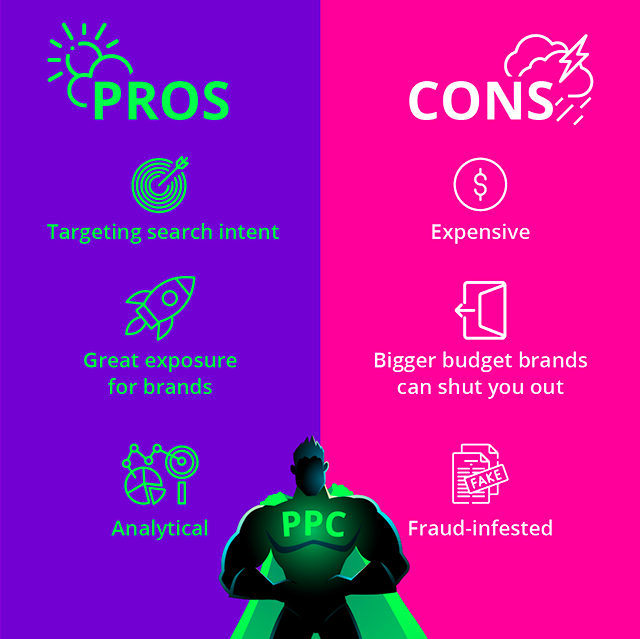PPC: The Digital Hero of Advertising?

Saving Marketers from Stormy Weather to Clear Skies
It’s difficult for us to imagine a world where we didn’t look to the internet for anything that we want, or for us to even grasp how the advertising world functioned before the internet became the go-to market for everything. As the world progressed, so did technology. Many models came and went, but only one has outlived all to grace the modern era of advertising: Pay-per click (PPC).
PPC Pros and Cons
PPC marketing is an advertising model used to drive users’ traffic to websites to help them find what they’re looking for. Advertisers pay publishers like Google and LinkedIn whenever their ads are clicked on. In return, they receive impressions and potential leads – almost passively.

The biggest advantage of PPC is its ability to perform targeting search intent, which is also the main reason why marketers are so obsessed with PPC marketing and willing to invest the bulk of their budget into it.
It’s a neat little function in which a customer types a keyword related to what they’re looking for, and a slew of options appear on the next page. Mastering this simple yet effective method will immensely boost your brand’s reputation.
Mastering this method also requires a big ad budget, which can be a disadvantage to brands with limited marketing budgets and resources. At the cost of improving your brand’s image, you’re also forced to inject a huge part of your budget into online ads, because, to put it simply: no budget, no traffic.
There are also external factors that affect your online ranking such as bigger brands pumping more into their PPC budget to block competitors out, and even issues like click fraud which can seriously hamper your brand’s campaign performance and online presence.
But through it all, PPC advertising has settled into the minds of marketers as a reflex action whenever they plan for a campaign as it’s a proven and (slightly) easier way to gain exposure. However, every hero comes with its own set of villains.
Villainous Intent: PPC Fraud
As long as PPC has been prevalent on the internet, so has its own arch nemesis. A kind of click fraud, PPC fraud has been around since the early years of online advertising, and has adapted over the years.
With its many aliases, it seeks to suck brands dry of their marketing budget while profiting by masking themselves as allies of justice. They don on sheep’s clothing by portraying themselves as seemingly reputable people, and go on to trick brands into countless empty impressions through fraudulent clicks.
It has cost the average business over 80% of their budget, and has since grown into huge multi-million losses all around. It is important to protect yourself and your brand from PPC fraud due to negative consequences such as affecting your brand’s reputation, ad budgets being wasted, loss of profit, and invalid traffic, which we have spoken previously.
Solutions for The Modern Marketer
To quote loosely from Sun Tzu’s Art of War, knowing thy enemy is an important step to victory. With its plethora of names: Ad fraud, click fraud, ad bots, etc., they all function in a similar manner. Be aware of external advertising parties when your analytics show a massive influx of impressions but no real genuine leads coming through. This is the main modus operandi of PPC fraud.
ReverseAds has its own method of dealing with PPC fraud. The “Premium CPC” model ensures that marketers are only paying for what you get: high-intent customers during the consideration stage right before they decide to purchase. We’re fine tuning the game of PPC so that you can reap all of the rewards without overspending at a comfortable budget.

To find out more about our solutions for effective and optimized PPC advertising, get in touch with us.





